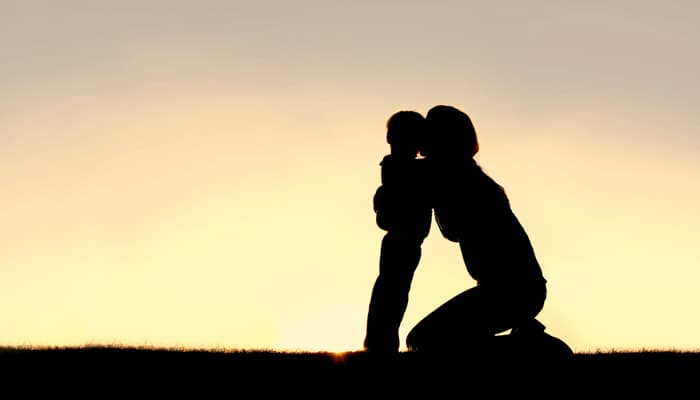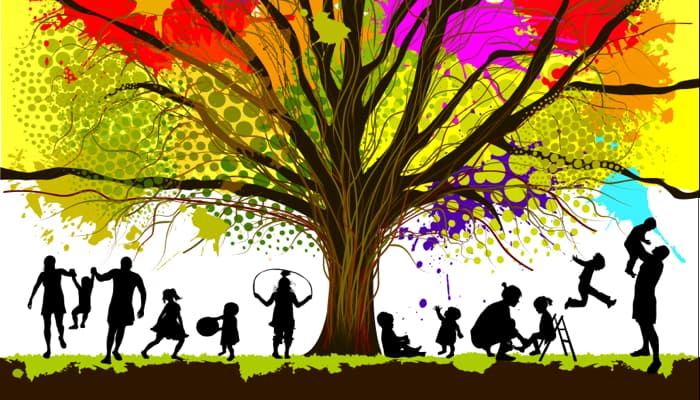Category: Blog
Blog: Ask Isa: Are All Past Lives Traumatic?
By Isa Gucciardi, Ph.D.
Question: It seems like all the past lives I contact with Depth Hypnosis are traumatic in nature. Do we have happy past lives?
The concept of reincarnation is found in many spiritual traditions. To my mind, the tradition that best articulates the relationship between our previous lives and our current life is Buddhism. In that tradition, there is a concept called a “sanskara.” A sanskara is an imprint that contains information about the focus of the mind at the time of death. The information contained in this imprint is considered to be at least part of the focus upon which the next lifetime is based. For this reason, Tenzin Wangyal, a well-known Buddhist teacher, says, “If you want to know what your past life was, look at your current life. If you want to know what your future life will be, look at your present life.”
Blog: Driving Lessons: Zen and the Art of Road Rage Maintenance
By Isa Gucciardi, Ph.D.
You may have read my article, “Driving with Bob,” which talks about the existential fun that is a feature of driving around with Robert Thurman. We have had many adventures behind the wheel, as I often volunteer to take him up and down the California coast to his various commitments when he is out West. It is always a pleasure for me to be able support him in this way, and, as I point out in the article, there is seldom a dull moment with Bob around. We did have a moment driving in traffic on the San Francisco–Oakland Bay Bridge the last time he was in town that could have been a bit duller to my way of thinking.
Blog: The Call to the Shamanic Path
By Isa Gucciardi, Ph.D.
I am often asked how people can know if the shamanic path is a path that is right for them. Of course, this is a very important question – but only the individual can really know if the shamanic path is right for them. When people ask me this question, I ask, “Have you had anything out of the ordinary happen to you? You may have had anomalous experiences – you may have felt a shift in the light and a sense of a presence of something unseen. Or perhaps you have vivid dreams while those around report never dreaming, or perhaps you have had an illness or a calamity befall you which has changed you and separated you from those around you. And you may have set off on a path to try to understand these experiences.” If this is the case, it is likely that education related to the shamanic path will be helpful to you.
Blog: Spiritual Maturity and Depth Hypnosis
By Isa Gucciardi, Ph.D.
People often ask me if Depth Hypnosis is like psychotherapy. If psychotherapy is a process of identifying psychological disturbance and then talking about it, possibly while working with prescription drugs to reduce symptoms, then it cannot be said that Depth Hypnosis is psychotherapy. In Depth Hypnosis there is no process of diagnosis and no use of medication. Rather, it is more a process of inquiry and discovery – particularly about client experience that might be hidden or unknown.
In “The Ten Lessons of Psychedelic Psychotherapy, Rediscovered” Neal M. Goldsmith suggests that it might be more accurate to look at symptoms of imbalance such as anxiety and depression as an indicator of spiritual immaturity rather than as an indicator of psychological pathology. This is an intriguing idea – and certainly one that resonates with the practice of Depth Hypnosis.
Blog: Buddhism Offers a Solution to Hopelessness
By Isa Gucciardi, Ph.D.
According to the World Health Organization, depression is the leading cause of disability worldwide and the epidemic of depression raging across the world will be the single biggest contributor to the overall burden of disease of all health conditions by 2030. Suicides by high profile personalities such as Robin Williams, Anthony Bourdain, and Kate Spade have triggered a widespread effort to understand what causes people to suffer so much that they find suicide to be a viable option.
When I first began practicing Buddhism, a teacher told me that everything is an illusion – so my suffering was an illusion. All I needed to do was to let go of the illusion of myself and the suffering would go away. This was not helpful. In my view, spiritual practice which encourages the student to “Just let go of the self!” or “Just let go of the pain!” is misguided.
Blog: Listening to the Sacred Earth
By Isa Gucciardi, Ph.D.
If we listen, the earth has much to tell us. When humans lived closer to the earth, they understood that great wisdom was held in the trees, the plants, the rocks and the sea. They communicated with the earth, and learned ways of listening to the wisdom she had to offer. For example, the shaman of a tribe is often described as talking to the plants to learn the nature of their medicine. Ways of gathering this kind wisdom are still preserved by many indigenous cultures. The vision quest and the shamanic journey are just two examples of these processes that are accessible to us today.
Blog: Healing Your Mind by Dropping into Your Heart
By Isa Gucciardi, Ph.D.
Sometimes people come into my office struggling with a problem, and whenever they try to address it, they find themselves stuck in “mind loops.” Mind loops are characterized by sequences of labyrinthine reasoning containing dead ends and knotted thoughts that fold back on themselves without producing the hoped-for clarity.
People who experience this type of mental confusion are usually viewed as having a high level of intellectual intelligence, and tend to work in professions that require the use of their intellect. These people are able to generate logic sequences that make them valuable contributors at work. This capacity, however, can often send the same people into mental traps when they try to apply these logic sequences to experiences that do not necessarily respond to logic.
Blog: Repatterning Life Transitions and Initiations
By Isa Gucciardi PhD
Within each of our lives, we have important moments of transition, which we experience in our bodies, that can be understood as initiations into a new way of being. Birth, death, puberty, the sexual encounter, becoming a parent, and for women menstruation, menopause, and giving birth, are all potent initiations we experience in our lifetimes. Each of these initiations holds powerful information and the possibility of transforming long held patterns that no longer serve us.
Blog: Safeguarding Birth, Invoking the Sacred
By Isa Gucciardi, Ph.D.
From the moment we are born until the moment we die, women are constantly engaged in the processes of creation, creativity, and change. For much of our lives, through our monthly cycles, our bodies create forms to prepare to receive new life, and if that new life is not received, a process of destruction of those forms takes place.
When we give birth, in the process of becoming a mother, our old sense of self as an independent being falls away, and, in defining ourselves, we include the needs of another in a very real and intimate way. As a woman goes into labor, however, the new definition of self as a mother who includes the identity of her child as part of her own self-identity has not quite gelled, and the old definition of self as a single, unitary being is challenged. As this challenge occurs, the power that was binding together the old form – the independent woman – is released. This power is then available to create the new form – the mother.
Blog: Conscious Parenting Part 6: Learning from Our Triggers
By Joanna Adler, Psy.D.
Editor’s note: Joanna Adler, Psy.D. is a certified Depth Hypnosis Practitioner and licensed clinical psychologist. Her two-day workshop on Conscious Parenting will be at The Bodhi Center in Bainbridge Island, WA on the weekend of April 28-29.
Life throws so many difficult things at us as parents. It’s important to find enough time to support ourselves so that we can be resilient and offer that same support to our children. We know this, but sometimes it can feel like yet another thing to do. The good news is that there are practices we can cultivate for when we encounter difficulty in our relationships with our children, practices that allow us to get out of the way and offer the child what is truly needed in that moment.
Blog: Conscious Parenting Part 5: Interview with Joanna Adler, Psy.D.
Editors’ Note: We’re delighted to publish this interview with Joanna Adler instructor of the Conscious Parenting workshop that will be offered at The Bodhi Center, Bainbridge Island, WA on April 28 and 29. Joanna Adler is a licensed clinical psychologist and certified Depth Hypnosis Practitioner. She has studied extensively in the fields of Depth Hypnosis, Buddhist Psychology, Shamanism, and Energy Medicine at the Foundation of the Sacred Stream. We asked Joanna about how she helps people with the dizzying array of choices parents face on a regular basis, what the word “discipline” means to her, and what interests her most in her work with families.
Q. How do you work with parents that may be struggling with knowing how to best support their children when there are so many choices, so many potential ways to respond in a given situation?
Blog: Conscious Parenting Part 4: Cultural Context
By Isa Gucciardi, Ph.D.
In the first post in this series on conscious parenting, I touched upon how important it is for us, as parents, to know what we value, because our values become the structures within which our children learn to express themselves. Then I discussed how we can foster the authentic expression of our children’s highest potential and how to get out of the way of this expression. Because the cultural context can have a significant influence on our children’s expression, it is also important for parents to determine how well this context is contributing to our children’s highest potential. The cultural context, for the purposes of this post, consists of the values and priorities of the society in which you live.
If you have values that are different from the surrounding society, it will be even more important for you to be clear about what your own values and priorities are, and communicate them clearly to your children. If you don’t, your children may absorb the values of those around them by default, and that may put you at odds with your children.
Blog: Conscious Parenting Part 3: Getting out of the Way
By Isa Gucciardi, Ph.D.
The last post in this series on Conscious Parenting addressed how to recognize our children’s highest potential and why it is important to move out of the way of its expression. The question we were left with was, “How do I get out of the way?” One of the best ways to get out of the way is to look at your attachments to having your child be a particular way. Those attachments are probably a function of something that did not work in your own childhood.
Blog: Conscious Parenting Part 2: Children’s Highest Potential
By Isa Gucciardi, Ph.D.
If I had to define one goal that we, as parents, must do our best to attain, it would be to protect and cultivate our children’s highest potential in the world. Naturally, every child’s highest potential has its own expression. Every child has a set of gifts that she brings into the world that resonate with the child’s deepest calling. You will find that I use the phrase “highest potential” interchangeably here with “a child’s deepest calling,” “the child’s most authentic expression,” and “the child’s gifts,” because each of these offers a different view and definition that points to the complexity of the deepest aspects of our children.
But how do we support our children’s authentic expression in the world?
Blog: Conscious Parenting Part 1: Six Essential Questions for Parents
By Isa Gucciardi, Ph.D.
I am a parent of two children, and I have been counseling and teaching families and individuals for more than twenty years. Over the course of the last ten years, I have seen many of the central issues around parenting shift drastically, mainly due to the more central role that technology now plays in the family.
The challenges that parents face today in raising children are very different from the challenges their parents faced. Not only do parents have to figure out how to function on less sleep, they also have to determine the role they want technology to play in their children’s lives. As parents find themselves with less time than they would like to be able to devote to parenting, they have to come up with clear strategies for enrichment, discipline, and many other important issues. This is difficult when people find themselves trying to navigate the issues around work-life balance, and face down issues such as self-doubt and guilt about the choices they must make.















